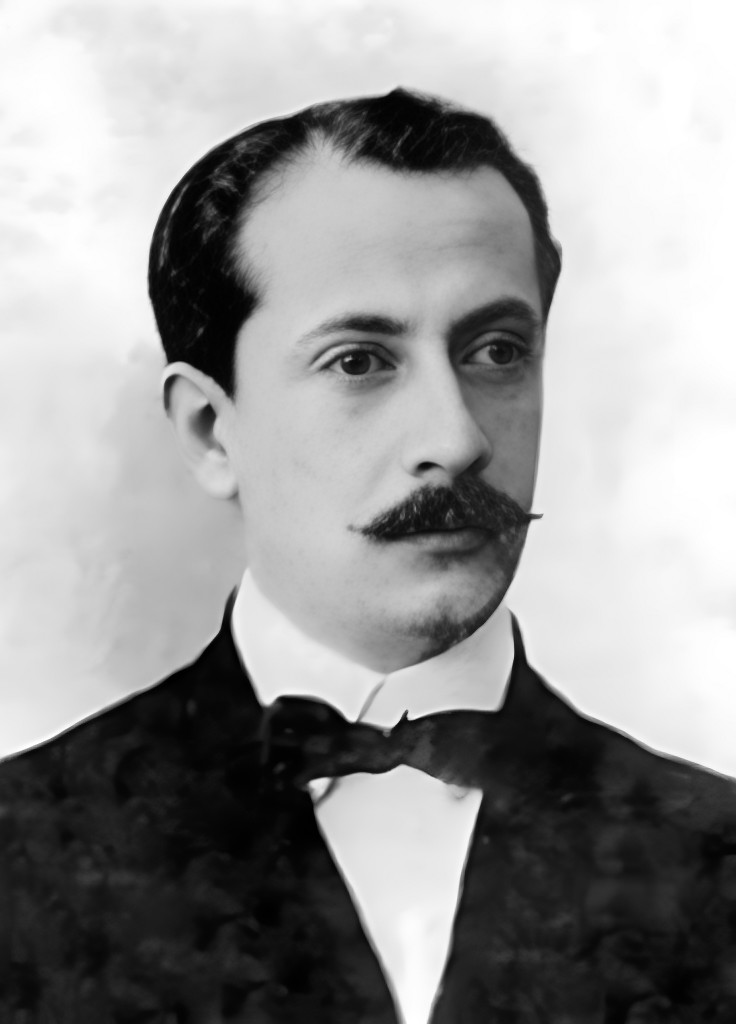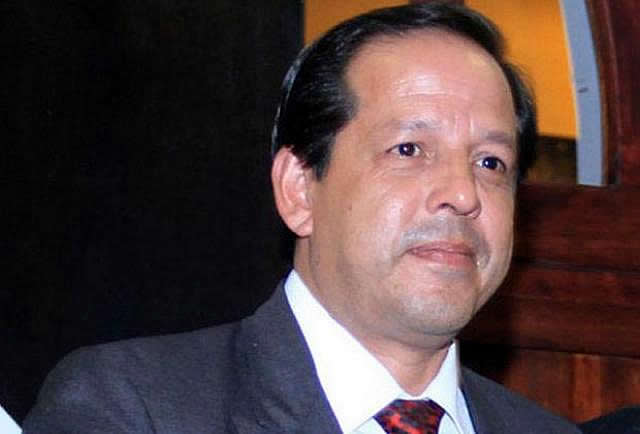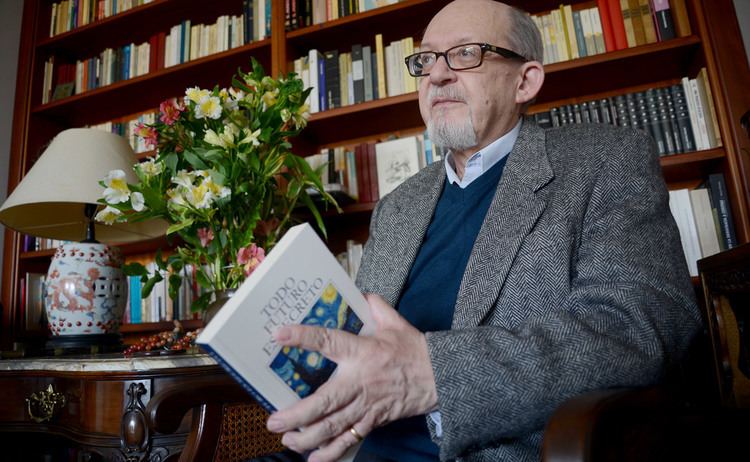Rafael Pino Roca (Guayaquil, October 24, 1878 – Guayaquil, 1963) was an Ecuadorian poet, playwright, and diplomat. Educated in Germany, he became fluent in multiple languages and developed a deep admiration for European culture. Pino Roca held key government roles, including Minister of War, Navy, and Aviation, where he helped establish Ecuador’s first aviation school. His literary works, notably the epic poem Canto a la Raza, gained wide acclaim. He also served as Ecuador’s Consul in Europe and was known for his controversial pro-German stance during the prelude to World War II.
Early Life and Education
Rafael Pino Roca was born on October 24, 1878, in Guayaquil, Ecuador. He was the son of Demetrio Pino Reinel, a Colombian merchant who settled in Ecuador, and Rafaela Roca Molestina. Pino Roca grew up in a family of eight siblings. His early education took place in Guayaquil, after which he and his brother were sent to Hamburg, Germany, to complete their studies at the Wanschaft School. His time in Germany profoundly influenced his intellectual development, fostering fluency in German, French, and English and shaping his admiration for European, particularly German, culture.
Literary and Diplomatic Career
Pino Roca began his literary journey in the early 1900s. In 1905, his poem Voluble was published in the Guayaquil magazine Patria, marking the beginning of his career as a poet. His work often reflected modernist themes, and over the years, he published various poems and plays. In 1915, he co-authored the play La Pólvora with César Borja Cordero, which premiered at the Teatro Olmedo in Guayaquil.
Aside from his literary work, Pino Roca held several governmental and diplomatic positions. From 1908 to 1911, he served as the Captain of the Port of Guayaquil, a role to which he returned in 1924. Under President Alfredo Baquerizo Moreno’s administration (1916-1920), Pino Roca was appointed as Ecuador’s Minister of War, Navy, and Aviation. During his tenure, he played a key role in the creation of Ecuador’s first aviation school by securing aircraft and instructors from France.
Contributions to Film and Literature
Pino Roca’s interest in both literature and historical revisionism is evident in his ambitious screenplay Bolívar: o la Libertad de un Continente, which sought to chronicle the life and struggles of Simón Bolívar. Although the project garnered widespread support from the presidents of Venezuela, Colombia, Ecuador, Peru, and Bolivia, as well as prominent historians, the film was never realized due to the political turmoil in Latin America and the outbreak of World War II.
In the literary sphere, Pino Roca achieved acclaim with his epic poem Canto a la Raza (1934), written during his time as a diplomat in Prague. The work celebrated the history and conquest of the Americas, earning praise both domestically and internationally for its vivid portrayal of historical events.
Diplomatic Missions and Revisionism
Pino Roca’s diplomatic career extended to Europe, where he served as Ecuador’s Consul General in Bremen and Prague in the 1930s. Later, he was appointed as Chargé d’Affaires in Berlin. His time in Germany deepened his connections with the political elite of the time, including Adolf Hitler. Pino Roca’s pro-German sentiments were reflected in his publications such as Hitler ha dicho la verdad (1937) and Verdades Documentadas, in which he defended Nazi Germany’s policies and attempted to counter British propaganda about the impending conflict.
Legacy and Final Years
In the 1950s, Rafael Pino Roca composed El Virrey Penitente, a historical drama about José Solís Folch de Cardona, the Viceroy of New Granada. The play received positive reception in Bogotá, further cementing his legacy as a writer. He also authored genealogical studies of his family, demonstrating his scholarly interests.
Pino Roca passed away in 1963 in his hometown of Guayaquil. Posthumously, his poetry collection Mosaicos was published, featuring a selection of his modernist work. His contributions to Ecuadorian literature and diplomacy, though controversial due to his alignment with Nazi ideology, left a significant mark on the country’s cultural and political history.
Recognitions and Accolades
Throughout his life, Rafael Pino Roca received recognition for his work in both literature and diplomacy. His poem Canto a la Raza remains a celebrated piece of Ecuadorian poetry, and his diplomatic efforts helped strengthen Ecuador’s relations with European countries during a critical period in global history.
Poem
HOW DID THEY COME TO KNOW?
Translated by Richard Gabela on 4/9/2024
“How did they come to know?” you ask—
about the love we pledged that night,
whispered so softly,
just between us,
with only the heavens and God
as our witnesses?
I’ve spent endless hours
pondering that moment,
searching for the wretch
who carelessly exposed us.
After much thought,
I’ve identified the betrayer
who, out of envy, my love,
scandalously revealed our secret.
Let me tell you the story,
for it was unwise of us
to declare our love
while leaning from that balcony.
I remember, high above,
your sweet voice
was being savored with delight
by an enchanted star.
That star, my beloved,
jealous of our union,
of the sacred love
we vowed that night,
was bewitched by your caresses,
by the timbre of your voice—
a dove’s soft coo—
and by the radiant light in your eyes,
whose brilliance even the sun would envy.
Envious, the star broke free
from its lofty height
and plunged into the sea…
It left the sky for us—
oh, what bliss was ours!
But as it fell,
it confided our secret to the waves,
which passed it to the oar,
and from the oar to the fisherman,
from the fisherman to the village,
and from the village… who can say?
All I know is that now
everyone knows
we love each other.
¿Qué cómo lo saben?
¿Qué cómo saben, -preguntas-
que nos juramos amor
aquella noche al oído
despacito tú y yo
si por testigos tuvimos
tan sólo al cielo y a Dios?
He pasado horas enteras
meditando en la ocasión
de descubrir al infame
que torpe nos traicionó,
y al fin, de tanto indagar
he descubierto a traidor
que por envidia, bien mío,
infame nos delató.
Voy a contarte su historia
pues fue poca precaución
declarar que nos amábamos
asomados al balcón.
Recuerdo que allá en la altura
las dulzuras de tu voz
escuchaba con deleite
un lucero encantador.
Ese lucero, bien mío,
celoso de nuestra unión,
de aquel amor tan divino
que nos juramos tú y yo,
hechizado en las ternuras
y en el timbre de tu voz
que es arrullo de paloma,
y el luminoso esplendor
de los soles de tus ojos
que envidiara el mismo sol,
desprendiose de la altura
y en el mar se sepultó…
Dejó el cielo por nosotros…
¡Qué dicha la de los dos!
Y en su caída, a las olas
nuestro secreto confió;
de las olas pasó al remo
y del remo al pescador,
del pescador a la villa,
de la villa… qué sé yo,
lo cierto es que todos saben
que nos amamos los dos.
Selected works
Poetry
- Canto a la Raza (1934)
- Mosaicos (1963) – a posthumous collection of his poems.
Plays
- La Pólvora (1915) – co-written with César Borja Lavayen
- El virrey penitente, drama en 3 actos (1960)
Non fiction
- Estudio de la Genealogía de mis Antepasados
References
- Enciclopedia del Ecuador, “Rafael Pino Roca.” Retrieved on October 7, 2024. Click to view.
- Metapedia, “Rafael Pino Roca.” Retrieved on October 7, 2024. Click to view.
- Rodolfo Pérez Pimentel, “Pino y Roca Rafael.” Retrieved on October 7, 2024. Click to view.


